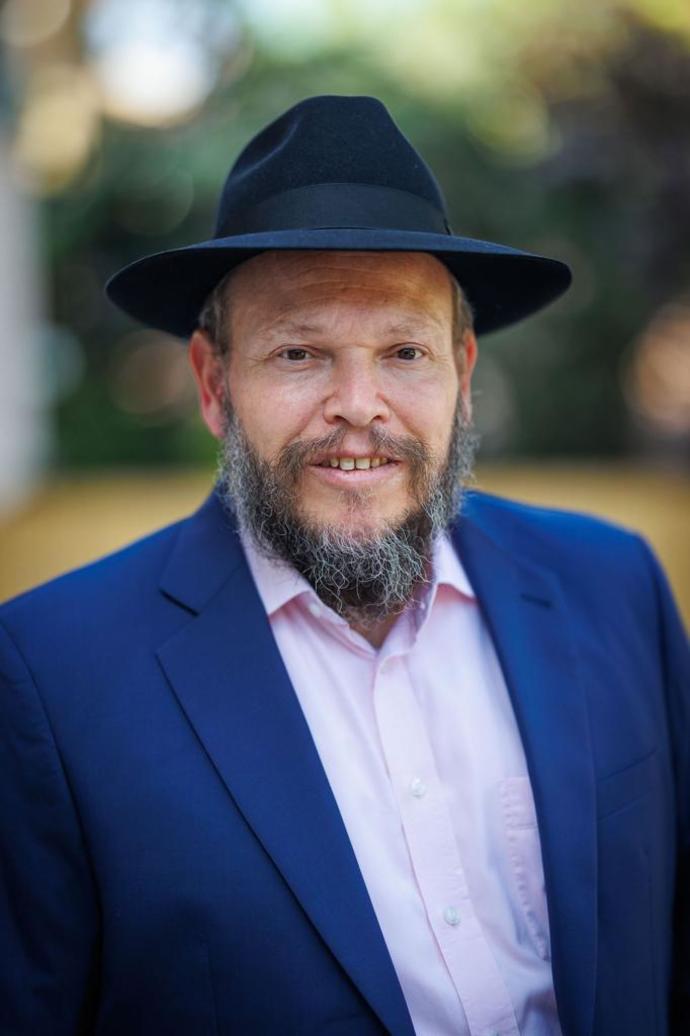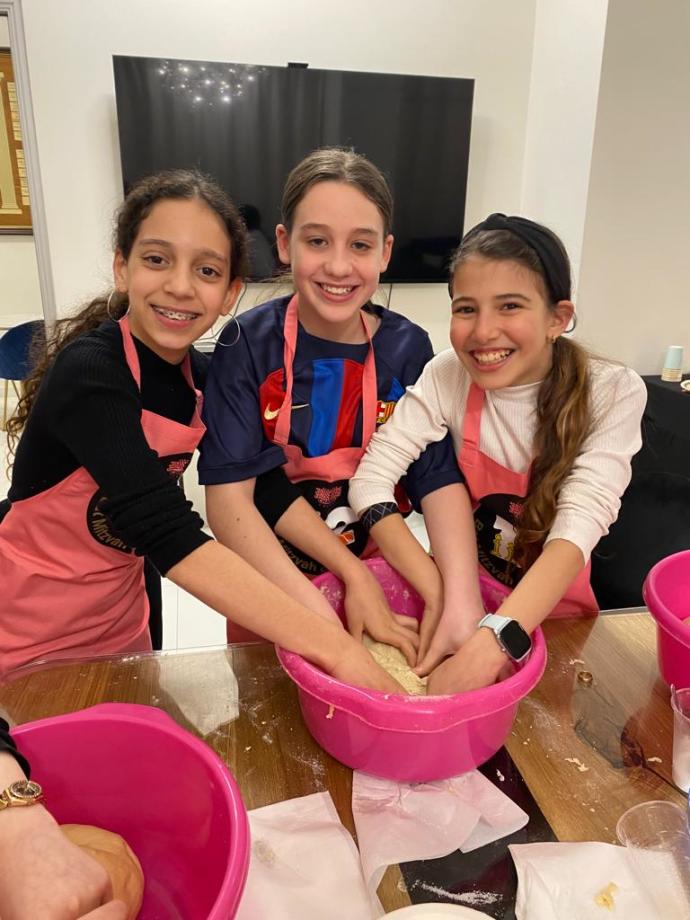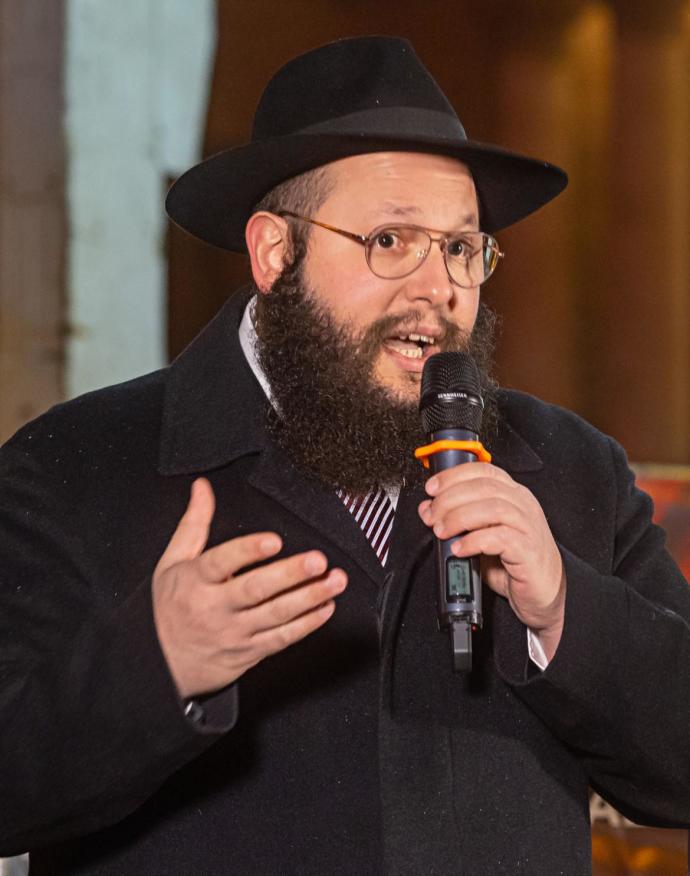From triumph to tragedy: Chabad of Poland battles for Jewish refugees in Ukraine-Russia war

Chabad of Poland is preparing to help thousands of Ukrainian refugees celebrate Passover.
Until the morning of February 24, 2022, the Chabad Center at 19 Slominskiego Street in Warsaw, Poland, operated like most busy Chabad centers around the world, providing religious services, assistance and inspiration to residents and tourists alike. Rabbi Shalom DovBer Stambler, director of the center, and his wife, co-director Dina Stambler, were busy daily, organizing daily and Shabbat services, Friday night and Shabbat afternoon meals, Torah classes for men and women, a soup kitchen, and usage of the center’s mikveh.
On that Thursday morning, Russia attacked Ukraine, and the calm of the Chabad Center was broken. “When the war broke out,” says Rabbi Stambler, “many people began knocking on our doors every day. We were not prepared for this.”
During those first tumultuous days, the Chabad representatives provided food, shelter, medicine and clothing to the hundreds of refugees who arrived daily. “We rented apartments for them in Warsaw through Airbnb and rented the entire DoubleTree Hilton Hotel from April until July – from Passover through Shavuot – giving them the opportunity to live in good conditions,” says Stambler. Throughout the three-month period, between 50 and 150 rooms were in use by Chabad.
Rabbi Stambler says that in the first days of the conflict, the Jewish people worldwide mobilized quickly to help the refugees streaming to Chabad in Poland. “The Jewish people mobilized very quickly,” he recalls. “People were calling, offering to cook and transport items. Many people donated to our crowdfunding campaign, mostly from the United States, but also from other countries. The Joint Distribution Committee and other organizations also provided support,” reports Stambler.
Stambler’s brother, Rabbi Mayer Stambler, who has been active in fundraising for Chabad in Poland since the outbreak of the conflict, is effusive in his praise for the assistance that has been provided. “I offer tremendous compliments to our brothers and sisters around the world. They showed fantastic involvement and assistance, and we are proud of them.”
By the same token, Rabbi Shalom DovBer Stambler admires the character of the refugees. “I am impressed and inspired by their spirit, courage and determination. They don’t give up and are focused on what they want to achieve. He recalls the brit milah (ritual circumcision) that Chabad conducted for a family that had escaped from the city of Izyum in eastern Ukraine, that had been almost totally destroyed. “We provide three apartments for the entire family because they couldn’t return, and we found employment for them. After the boy had his circumcision, we discovered that his uncle had never had one. We celebrated a brit for him as well, and he said to me, ‘This is the only good thing to have come from the consequences of this war.’”
Rabbi Stambler says that in moments of crisis, when the need was great, generous Jewish organizations came through to ensure that programs could continue. In particular, he acknowledges the year-long assistance received from the donor-advised fund (DAF) from the Walder Charitable Fund that, from Kate and Marty Rifkin of the KMR Group Foundation, who generously donated to support the winter camp for refugee girls that Chabad in Poland operated during Chanukah, the dedicated assistance provided by Tzvi Sperber of JRoots, and the JDC office in Warsaw who helped in the first three months of the war in detaining the refugees.
Once the war settled into its deadly routine, some refugees from the conflict who had come to Poland went to Israel, Austria, and other countries, while a number remained in Poland. Chabad in Poland helped all these individuals, renting and purchasing apartments for those who decided to stay and purchasing hundreds of plane and bus tickets for those who chose to go elsewhere.
Today, approximately one hundred refugees remain in Warsaw who are receiving assistance from Chabad in Warsaw. Half of them have decided to stay, says Stambler, and the rest are planning on moving to Israel or other countries. In addition, he says, Jews from Ukraine frequently arrive for short periods of a month or less, for a brief respite from the sirens, bombs and power outages they suffer daily.
Those refugees who have decided to remain in Poland need help finding employment. Those who are on their way to other countries need assistance in obtaining means of transportation, while those who come from Ukraine for short periods need a place to stay during their visit.
Caring for the remaining refugees in Warsaw requires additional funds. While at the beginning of the war, the Jewish response around the world was immediate, today, the situation is different. “Then, I was receiving calls from people asking, ‘How can I help,” says Stambler. “Now, I receive emails from people who are writing that they already helped. Unfortunately, the crisis has not ended.”
Rabbi Stambler explains that the help that Chabad extends far beyond the financial. One day, he received a call from Rabbi Shalom Duchman of Colel Chabad, the social service organization, asking him to help locate an elderly woman who had left Odessa that morning and had not been seen since. Stambler organized a large group of local volunteers, who searched Warsaw, until they finally located the woman, providing food and accommodations for her, and purchasing a cellphone so she could contact her niece living in the United States. Chabad eventually found a place for her in a Jewish home for the aged in Germany.
Stambler notes that the Russian attack on Ukraine is no longer a front-page story, but those who have fled the war still need help. “In a way,” he comments, “people are more tired now than they were at the beginning of the war. We don’t have the privilege of telling someone who comes to our door that we already helped. We cannot say to them, ‘See you next war.’”
In addition to caring for the pressing needs of refugees, Chabad in Poland is in the midst of Passover preparations which requires support. “We became a central address,” says Stambler, and people are asking if we are organizing a program for Passover this year. We are receiving calls from people in Poland and Ukraine who want to spend Passover with us.״ Chabad in Poland will be hosting 1,200 participants at the Seders that it will hold in Warsaw, and well over 200 Ukrainian refugees will be staying at Chabad for close to two weeks, from before Passover until after the conclusion of the holiday.
In addition, Chabad will be sending out a group of young rabbis who will be conducting public Seders in five halls throughout Poland, hosting 200 refugees at each Seder. The cost of providing a Seder meal to each participant is $50.
There are numerous Jewish refugees in Poland and throughout Ukraine, who previously had joined community Seders in previous years, have found themselves alone during this difficult time. To assist them, Chabad will also be sending 2,000 Seder kits, including the traditional Passover foods throughout Poland and Ukraine. Each kit costs $30 to prepare, making the total cost of this program $60,000. Chabad of Poland will be providing Seder food, matzah and other basic needs to over 2,000 Jewish refugees.
Passover Expenses | |
Event | Cost |
Seder Night Kit | $30 |
2,000 Seder Night Kits | $60,000 |
Hosting Public Seders | |
Hosting Public Seders for 200 people | $10,000 |
Hosting Public Seders for 200 people at 5 locations | $50,000 |
Passover guest per day | $100 |
200 Passover guests per day | $20,000 |
200 Passover guests for 13 days | $260,000 |
Total Passover Expenses | $370,000 |
“We cannot do this work without the support of our brothers and sisters from around the world,” says Rabbi Mayer Stambler. “We are the ‘boots on the ground’ on behalf of the Jewish people. The refugees are coming to our door, but they belong to you, just as they belong to us. We are all connected. We are partners with you.”
Click here to help Chabad of Poland assist the refugees from the Russian-Ukraine war this Passover, or write to chabadwarsaw.pl@gmail.com for more details.
This article was written in cooperation with Chabad of Poland.
Jerusalem Post Store
`; document.getElementById("linkPremium").innerHTML = cont; var divWithLink = document.getElementById("premium-link"); if (divWithLink !== null && divWithLink !== 'undefined') { divWithLink.style.border = "solid 1px #cb0f3e"; divWithLink.style.textAlign = "center"; divWithLink.style.marginBottom = "15px"; divWithLink.style.marginTop = "15px"; divWithLink.style.width = "100%"; divWithLink.style.backgroundColor = "#122952"; divWithLink.style.color = "#ffffff"; divWithLink.style.lineHeight = "1.5"; } } (function (v, i) { });



